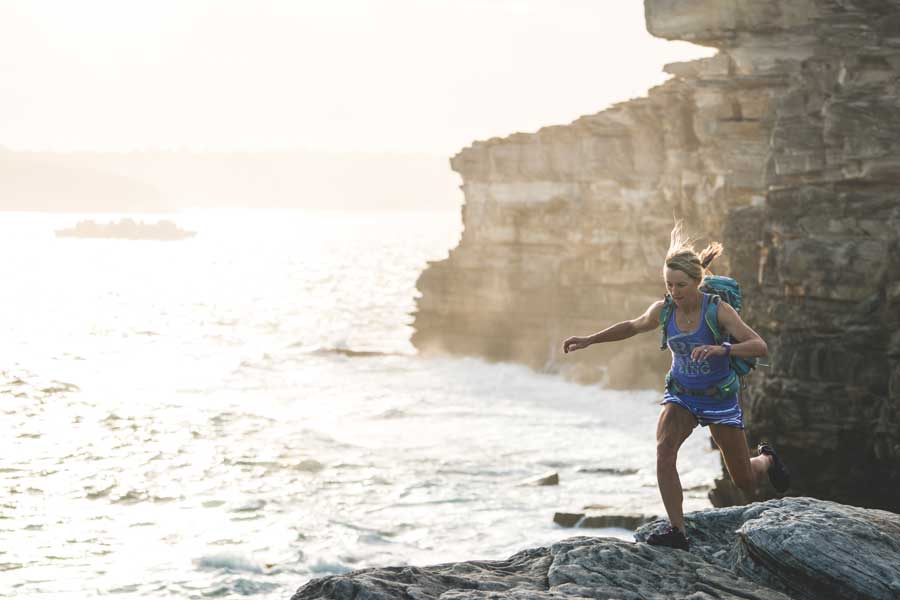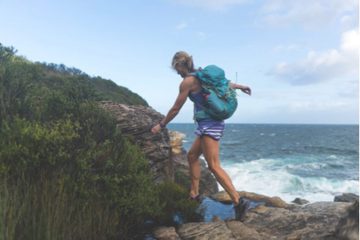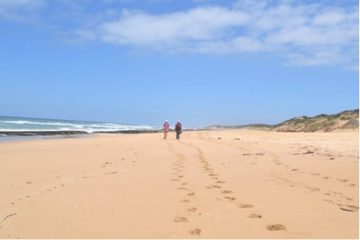
If you’ve already pre-registered for Coastrek in 2020, or if you are thinking about joining the epic 30km or 60km trek along Sydney’s beautiful coastline on March 15th next year, this article is for you. To get the insider know-how for race day, we spoke to trek athelete and event director Lisa Marshall from Coastrek to find out what it takes to finish this amazing race.
“Preparing your body, mind and team to take part in a 30 or 60km Coastrek is a journey. My top tip to anyone taking this on as a team goal is that you should view it as a journey to health and fitness from the start. Put in the training, have fun while you do it, and you will be rewarded!
1. Train enough: Depending on your current fitness level, I highly recommend you start training a minimum of 12 weeks out from event day if you have a good level of fitness and have taken part in similar events. Double this time if you are a newbie to these kind of endurance events and are building up your fitness. A 12-week training plan will be delivered to your inbox each week from Coastrek when you register with trek training workouts and time efficient HIIT (high intensity interval training) workouts for the outdoors to get you fitter faster. Combine HIIT training with trek training and then a long endurance walk with your team every second week, and you will get the most out of your training!
2. Avoid junk miles: too many people think that clocking up hours of trail walking makes for success. It doesn’t. You have to be time efficient with your training, and use a combination of interval style workouts to get you fitter, with some longer walks every two weeks. Whatever you do, please don’t drive your body and teammates in to the ground by walking miles and miles each week, as you will likely end up injured, short of time, tired and not necessarily any fitter than when you started out!
3. Happy Feet: Walking 30 or 60kms in a day involves your feet taking thousands upon thousands of steps over many hours. As this isn’t something you would usually do, getting the right footwear and ensuring you train in the shoes you will wear on event day is of ultimate importance. Did you know the biggest reason for people dropping out of endurance events is blisters? One little red welt on your foot can mean the end of the event for you! There are three ways to void this. First you need good quality wicking socks (my fav are Icebreaker, avoid cotton at all costs), secondly buy some well-fitted trail runners which you have allowed an extra half to one size bigger than your normal show size for when your feet swell. Lastly, create some good blister prevention strategies such as Compeeds/Fixomul tape on the places you usually get ‘hot spots’ and a little towel and talcum powder to dust your feet off when you get sand in your shoes along the route.
4. Get to know your gear: Use your longer training walks with your team to get used to your gear. My number one item of gear is a bladder system in a small pack (I love Camelbak) that will fit a few snacks, a rain jacket, a spare pair of socks, a bandana and some basic first aid.
5. Learn to eat and walk! My snack choices are NOT the things I would usually eat day to day, but they work for quick energy during long periods of effort. They are easy to digest, high GI foods that give energy but don’t require a lot of work from the stomach while you are walking. You need to practise eating and walking at the same time, yes it is an art! Bananas, oranges, crackers with cheese and vegemite for the salt craving, grapes, glucose tablets, home baked oat cookies are all easy to carry. You should aim to eat a small amount every 45 minutes to avoid sugar lows, but only when you are out walking for longer than three hours at a time. Eat on the flat parts of the trail, avoid eating just before a big climb! I always carry a small bottle to mix electrolytes and alternate these with drinking water when thirsty. Avoid pre-loading on pain medications when training or before the event – listen to your body, if it’s hurting you need to stop and rest!
For more training and tips, see the Coastrek E-book which is a guide to everything you need to know to get ready for your Coastrek adventure. You can also join them for Trek Training out on the beautiful coastal tracks, and their expert Adventure Coaches will get you fit to trek in half the time!




